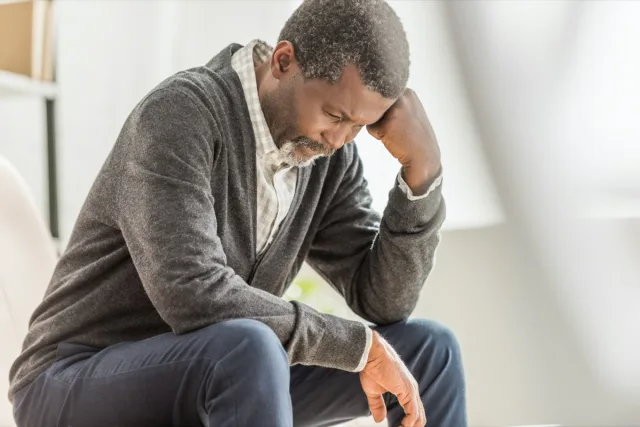How To Help Your Loved One (Or Yourself) Notice The Early Signs Of Dementia’ Dementia is a heartbreaking disease that can change the lives of those affected and their loved ones. It can be hard to know when it’s time to seek help and take action, especially when symptoms are not immediately obvious. In this article, we’ll explore the early signs of dementia and how you can help your loved one (or yourself) recognize them so that you can get the assistance you need as soon as possible.
Dementia is an umbrella term for a variety of different diseases that affect the brain and cause memory loss, confusion, and difficulty with daily tasks. It can be caused by a variety of things, including stroke, Alzheimer’s disease, Parkinson’s disease, Huntington’s disease, and other conditions.
READ ARTICLE: The Side Effects Of Taking A Break From Alcohol
How To Help Your Loved One (Or Yourself) Notice The Early Signs Of Dementia
The early signs of dementia can vary depending on the type and severity of the disease, but some common signs to look out for include:
• Memory loss or difficulty recalling recent events
• Difficulty planning or following through with complex tasks
• Struggling to keep up with conversations
• Confusion about time and place
• Difficulty navigating familiar places
• Changes in personality or behaviour
• Poor judgment in decision-making
• Loss of initiative or motivation
These are just some of the early signs that may indicate dementia. If you notice any of these symptoms in yourself or a loved one, it’s important to seek medical attention as soon as possible. Early diagnosis is key in helping slow down the progression of dementia and allowing those affected to live their lives to the fullest extent possible.
READ MORE: 5 Simple Ways To Keep Your New Year’s Resolution From Failing
How To Help Your Loved One With What is Dementia?
Dementia is a broad term used to describe a decline in cognitive abilities. This can include memory loss, difficulties with communication, and changes in mood or behaviour. Early signs of dementia may be subtle and easy to miss. However, it’s important to be aware of potential indicators so you can seek help early on.
If you notice any of the following changes in yourself or a loved one, it’s important to speak to a doctor:
-Memory loss that disrupts daily life
-Trouble completing familiar tasks at home or work
-Confusion about time or place
-Difficulty understanding new concepts
-Problems with speaking or writing
-Misplacing things and getting lost in familiar places
-Changes in mood or behaviour, such as increased irritability or apathy
Having Dementia: The Early Signs
The early signs of dementia can be hard to spot. Here are some things to look out for:
1. Memory problems. This is often the first sign of dementia. Your loved one may start forgetting things more often or have trouble retaining new information.
2. Difficulty with executive function. This can manifest as struggling to plan or organize tasks or complete them in a timely manner.
3. Trouble with language. Your loved one may have trouble finding the right words, or understanding what others are saying.
4. Poor visuospatial skills. This can lead to problems with driving, reading, or writing.
5. Changes in mood and behaviour. Dementia can cause changes in mood and behaviour, such as increased irritability, anxiety, or depression.
If you notice any of these signs in yourself or your loved one, it’s important to see a doctor for a full evaluation as soon as possible. Early diagnosis and treatment can help slow the progression of dementia and improve the quality of life
What Can You Do To Help Someone Diagnosed With Dementia?

If you have a loved one who has recently been diagnosed with dementia, there are a few things you can do to help them. First and foremost, it is important to be there for them emotionally. This is a difficult time for them and they will need all the support they can get.
You can also help them by staying active in their life. Dementia can make it hard for people to keep up with their hobbies or social activities, so it’s important to try and help them stay involved in things they enjoy. You can also help them by keeping their mind active with puzzles, games, and other mental exercises.
Finally, you can help them by providing practical assistance. This may include helping with household tasks or providing transportation to doctor’s appointments. Whatever you can do to lighten their load will be appreciated.
Conclusion
How To Help Your Loved One (Or Yourself) Notice The Early Signs Of Dementia
It is important to be aware of the early signs of dementia so that you can help your loved one, or yourself, get the necessary help and support as soon as possible. There are many resources available for those who may be struggling with dementia and it is important to reach out if needed. With proper diagnosis and treatment, some of the cognitive symptoms associated with dementia can be managed more effectively. Remember that knowledge is power—so do not hesitate to speak up when something does not seem quite right.
In addition, it is important to develop a support system of family and friends to provide emotional and practical help. Connecting with others who have been through similar experiences can be beneficial as well, as this can provide comfort and advice. Finally, creating an environment that is safe and secure for the person with dementia is essential. This may include making modifications to the home or arranging for assistance from a professional service. With proper care, you or your loved one can live a healthy and fulfilling life despite the struggles of dementia.
Also Read: Very Strange Symptoms Of COVID is Surging Again And Here Are The Symptoms Being Reported


